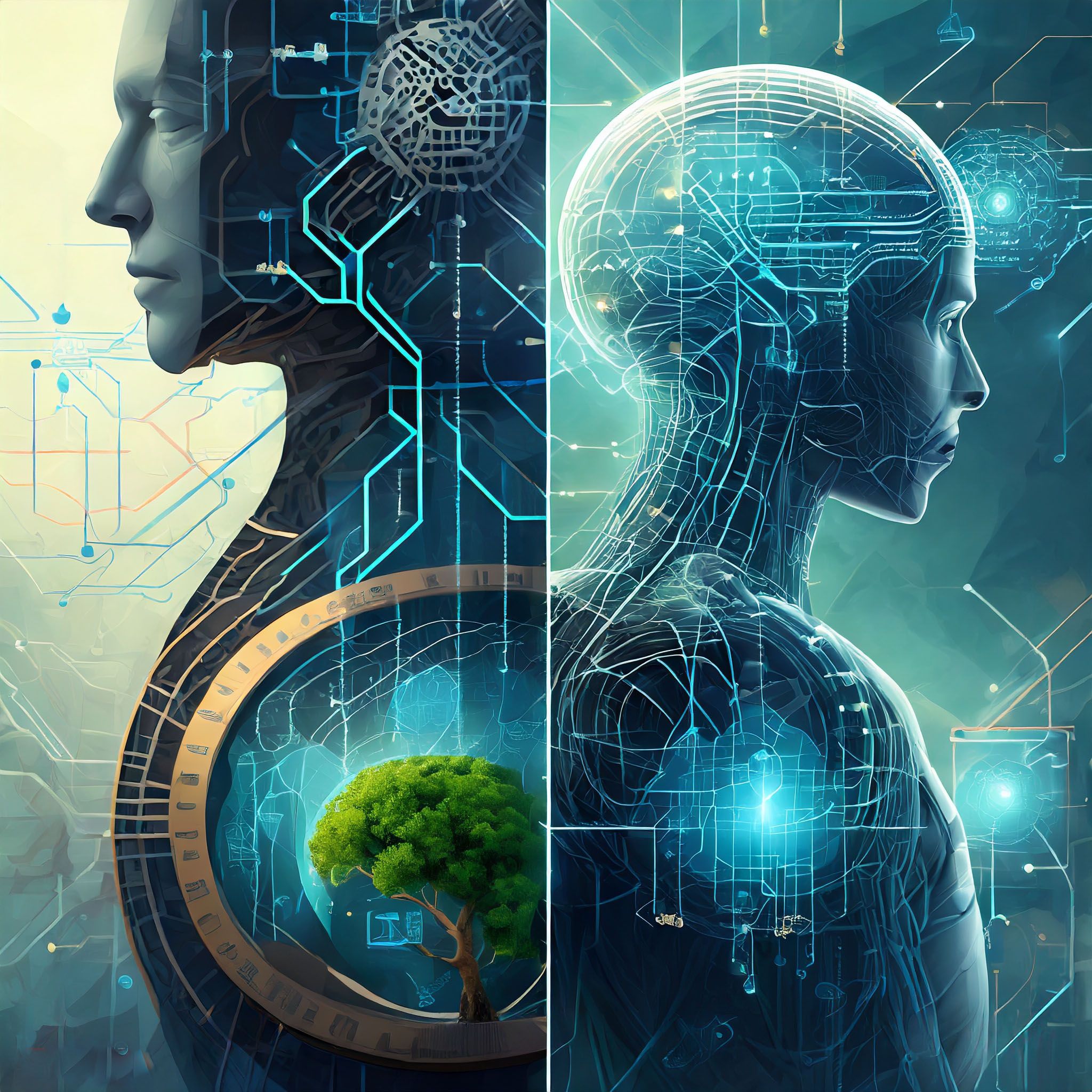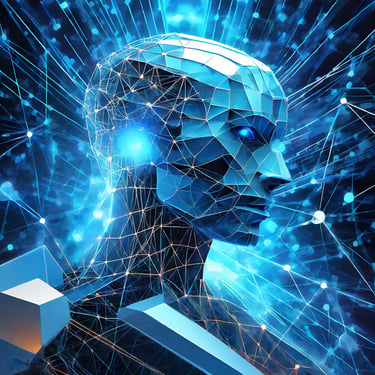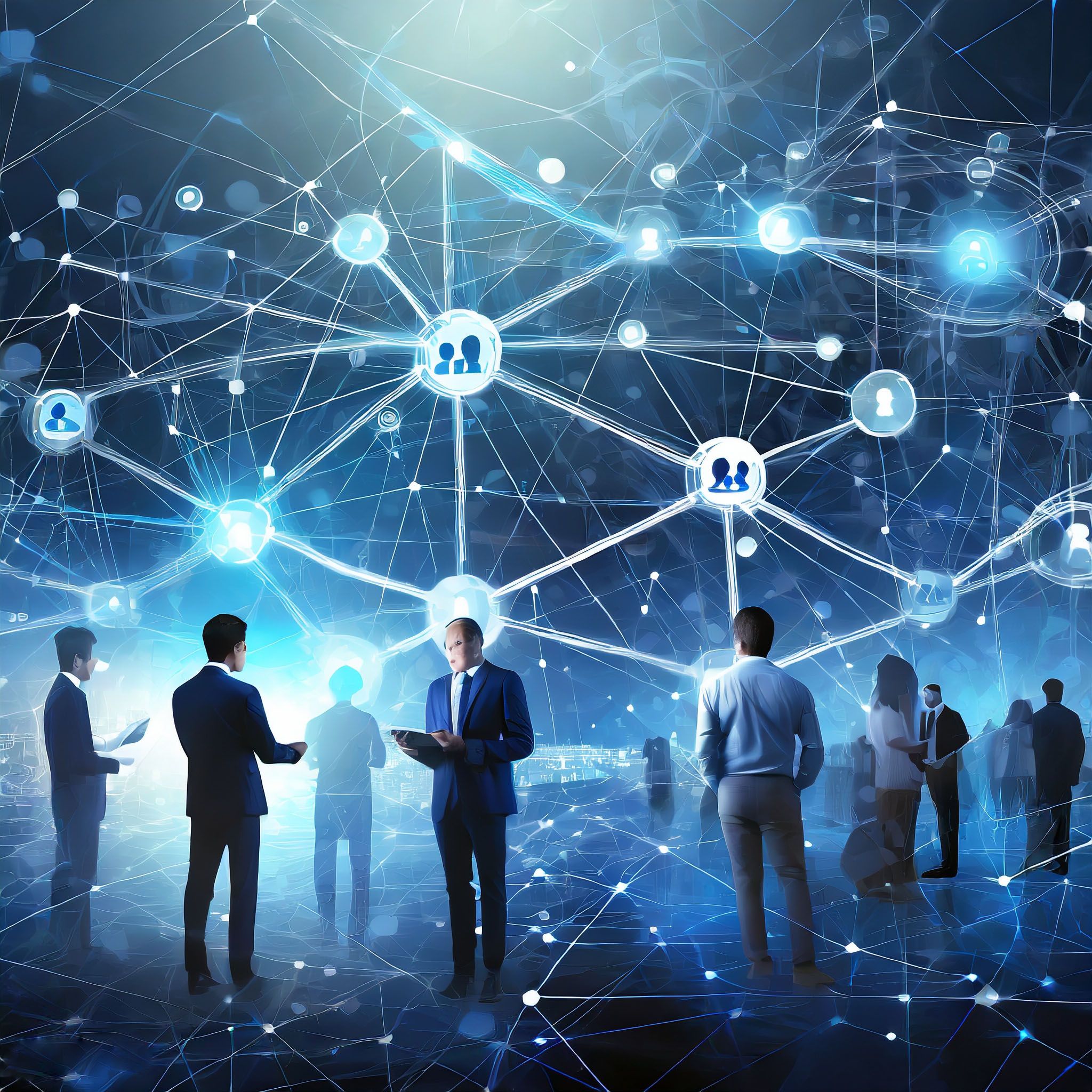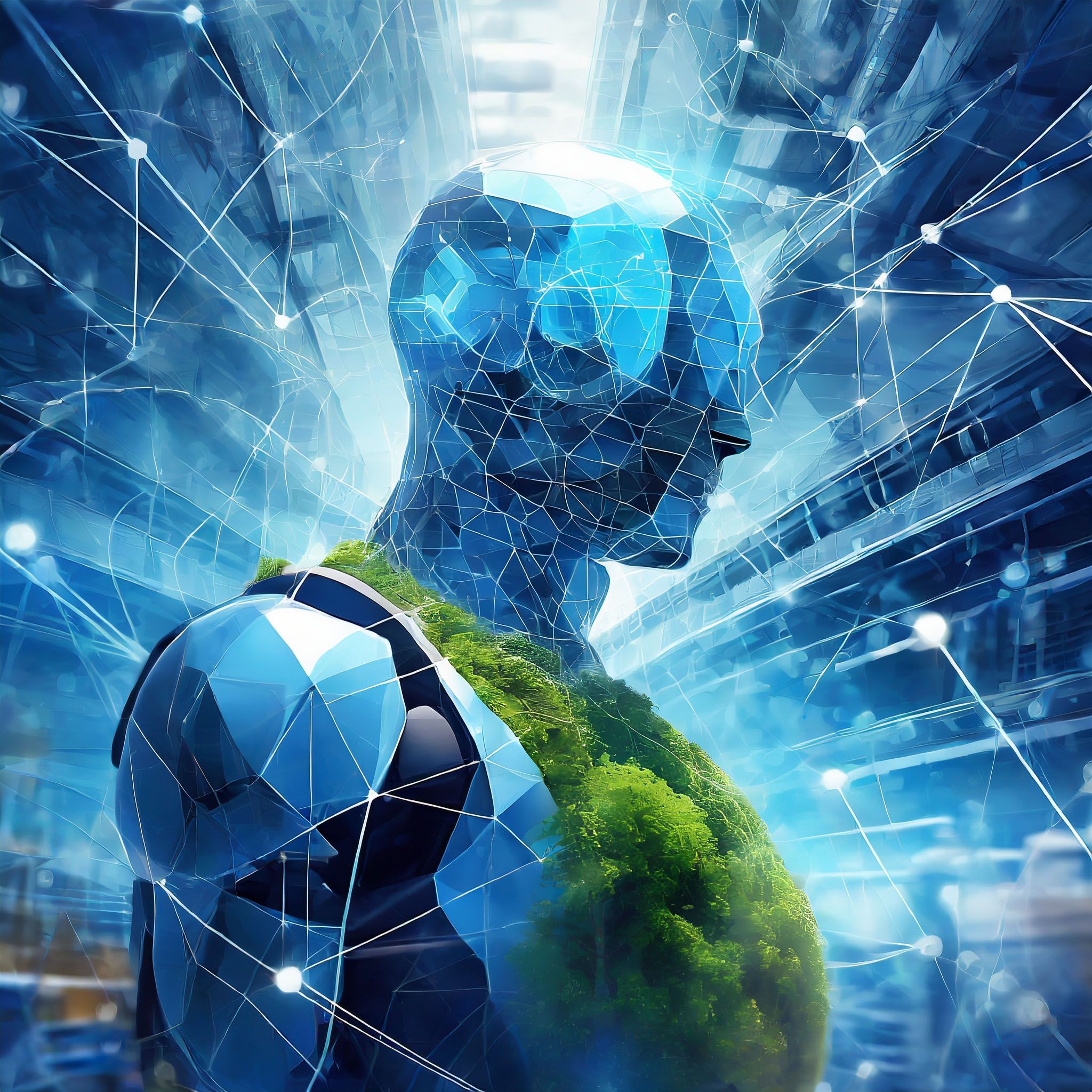
2024
The four pillars of digital innovation

An article on hyper-connectivity, artificial intelligence, sustainability and fairness. The latest innovations in telecommunications are changing our world, creating new opportunities and challenges for our future growth in all aspects. Advances in digital technology, cloud storage, and software have developed alongside the evolution of networks and devices. Recently, the emergence of services such as next-generation video games, virtual reality and metaverse have brought these two worlds together. Terms such as edge computing, digital twins, web3, and blockchain are bringing the cloud closer to the capabilities on the ground and vice versa, enabling not only high computational performance, but also low latency and more control and privacy due to the proximity of the infrastructures to the end user. At the same time, virtualising elements that until now only existed in our physical reality. This transformation will continue until we can talk about "Earth Computing", which brings together digital and physical advances. Telefónica is in a privileged position to take on the challenge of leading this transformation.
In this article, we examine four key aspects influencing innovation at Telefónica: hyperconnectivity, artificial intelligence, sustainability and fairness. These factors are interrelated and affect each other, creating a complex and changing environment that needs careful analysis and responsible action. The developments that will define our future will be determined by how these factors interact over the next 100 years.
Hyperconnectivity
01
Hyperconnectivity describes a future in which every component of the world can communicate effectively with every other. This communication can be passive, providing real-time information about the environment in which these elements exist, or active, creating not only information but also presenting new forms of action. This means that people, objects, data, processes and services will be linked by digital networks, creating an adaptive and intelligent environment. Hyperconnectivity enhances information access and sharing, joint learning, civic participation, co-creation of value, and increased efficiency and productivity. It is expected to have a significant impact in areas such as health, infrastructure management (energy, transport, security, etc.), and productive environments (agriculture, industry and services, especially in tourism). Even so, our current outlook is limited and new disciplines may emerge that currently exist only in theory or in the realm of fantasy and science fiction. However, it also poses challenges and risks, such as the digital divide, cybersecurity, privacy, ad iction, information overload and dehumanisation.

Artificial intelligence and advanced computing
02
Artificial intelligence refers to the increasing autonomy of digital systems to match or even surpass human skills in performing tasks that are currently specialised and gradually becoming more general. AI benefits from the precise knowledge it gains as it develops in a hyper-connected world, thus improving our lives and the way we interact with our environment. Artificial intelligence enables the development of machines and algorithms with the ability to learn, reason, make decisions and act intelligently, overcoming human constraints and expanding the possibilities of solving complex problems. Moreover, artificial intelligence helps to improve people's quality of life, health, education, leisure and general well-being. However, it also raises uncertainties and dilemmas, such as job losses, accountability, transparency, trust, ethics and coexistence. Artificial intelligence, along with other relevant digital solutions, are basically computer programs, i.e. code instructions that run on a physical computer. Currently, these computers and innovations in their design and operation are limited by the constraints of semiconductors. In the years to come, new computers will emerge that will take advantage of quantum phenomena in matter, leading to a radical change in the current computing paradigm and a significant advance in terms of performance and the type of processing we will be able to perform. The impact on fields such as materials science, pharmacology and chemical engineering is expected to be far-reaching and unlock a hitherto unattainable future. Indeed, this quantum technology will not only be applied to computer manufacturing, but will also allow us to capture quantum behaviours of matter in elements critical to our current understanding of the digital world. We will then enter the era of the Quantum Internet, giving rise to new digital systems. However, this progress poses great challenges due to its importance and the replacement of mechanisms that ensure an equitable relationship between humans and technology, especially in areas such as cryptography and the energy impact of these new computing systems.

Sustainability
03
Sustainability refers to the actions needed in today's economic, social and environmental fields to secure the future of the next generations. It means that digital innovation must be environmentally friendly, make judicious use of resources and promote social equity, inclusion, diversity and cohesion. Sustainability, in addition to preserving the environment, also implies that the benefits of digital innovation should extend to society at large, not just to specific individuals or organisations, and should promote culture, creativity, democracy and human rights. Importantly, sustainability objectives are not merely a means to comply with regulatory requirements, but can offer business opportunities and market differentiation. However, sustainability also poses challenges and tensions, such as governance, regulation, taxation, redistribution of resources and the balance between competition and cooperation.

Fairness
04
Accompanying sustainable developments from the outset, Fairness refers to all actions necessary to ensure that technological advances place people, their needs and ecosystems at the heart of their development. This implies providing tools that guarantee security, privacy, transparency, dignity, equality, empowerment and, ultimately, the ethical frameworks established by societies to ensure fair, balanced and universal coexistence. It is not enough to realise what is possible, but to know what is the right thing to do . Fairness implies that the advancement of technology must be ethical, responsible, honest and human-centred, i.e. it must respect the values, principles and rights of people and take into account the consequences and impacts of its use and application. Fairness also implies that digital innovation should be inclusive, unbiased, accessible and diverse, promoting participation, access, collaboration, dignity and co-design of all stakeholders, and recognising and valuing plurality and diversity. However, it also raises challenges and conflicts, such as autonomy, dignity, justice, equity, solidarity and how these affect the regulation of the sector.

Conclusion
Digital innovation is a phenomenon that has great potential to transform the world we live in, generating opportunities and challenges for human, social and economic development. In this essay, we have analysed four fundamental aspects that characterise and condition digital innovation: hyperconnectivity, artificial intelligence, sustainability and fairness. These aspects are not independent, but relate to and influence each other, shaping a complex and dynamic scenario that requires critical reflection and responsible action. It has been argued that digital innovation must be ethical, sustainable, inclusive and humane, and that it must take into account the needs, values and rights of people , the society and the planet . It has been proposed that digital innovation should be a collective, participatory and diverse process, in which all stakeholders can co-create, co-design and co-decide the future they want and deserve.

Do you have doubts about what happened?
Ask Aura